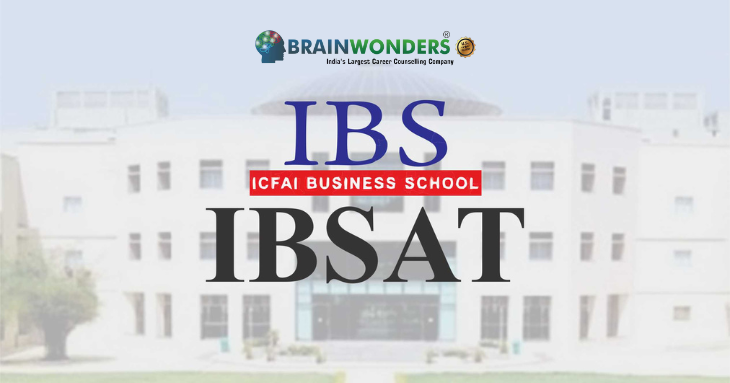

Take Brainwonders Career Test and make the right decisions for your college and course ahead
Get your U.S. Patented DMIT analysis and lead the way to a happy and successful career
Blog
24 August,2024 | By Brainwonders

Psychology is defined as the systematic investigation of the human mind and behaviour. It deals with aspects of human and non-human behavior; action and inaction of sociable and asocial individuals; thinking and non-thinking entities; ideas; emotions; and purposes. ! This is an enormous branch of knowledge that starts from the union of two different branches: natural science and social science. Neural emergent properties constitute a focal point of interest for biological psychologists, linking the discipline to neuroscience. Therefore, being social scientists, psychologists endeavour to explain the behaviour of people and crowds.
Possessing improved understanding of the subject of psychology is beneficial in interpreting own behaviour as well as the behaviour patterns of other individuals.
In Western culture, the development of psychology drew contributions from various fields, starting with philosophers like Plato and Aristotle. Hippocrates theorised about basic human temperaments (such as choleric, sanguine, and melancholic) and their corresponding traits, speculating that physical qualities like yellow bile or an excess of blood might explain differences in temperament. Aristotle used to suggest that the brain is the primary organ for thinking, while Cartesian dualism states that the mind is responsible for thought and consciousness in humans; however, the mind makes the decisions and the body then executes them. Modern psychological science continues to address this concept. Two pioneers who established psychology as a formal scientific discipline in the 19th century were Wilhelm Wundt in Germany and William James in the United States. James's The Principles of Psychology (1890) defined psychology as the science of mental life and offered deep insights into topics that would shape much of the field's research in the following century.
Psychology is a broad field with many specialised branches. Below are some of the key types of psychology:
1. Clinical Psychology: specialises in the identification and management of illnesses of the psychological, characterological as well as behavioural systems of a human body. Clinical psychologists suggest treatments to patients with anxiety, depression, or other psychological disorders.
2. Cognitive Psychology: Examines concepts like perceiving, memorising, learning, solving, and deciding. Cognitive psychologists examine how people process information and how they encode, store, retrieve, and attend to what they know.
3. Developmental Psychology: Covers the developmental aspects of an individual's personality and behaviour across the life span developmental stage. This branch focuses on the development of cognitive, emotional, and social domain.
4. Social Psychology: Deals with relations between personality, behaviour, and social environment. Some of the subjects focused on by social psychologists include group dynamics, prejudices, and social perception.
5. Biological Psychology (or Neuropsychology): Studies the science of behaviour, which includes mainly the anatomy and physiology of the brain and nervous system and how they result in thoughts, feelings, and actions. This area could be classified as closely related to neuroscience.
6. Criminal and Legal Psychology: combines psychological theories with the practice of law. Other functions of these professionals include criminal profiling, offering opinions in court, and assessing the mental health of the suspects.
7. Industrial-organisational psychology: Encompasses work behaviour and practices and the ways they may be enhanced and altered with the use of psychological knowledge.
8. Health Psychology: Explains various aspects with regard to mental state’s impact on health, sickness, and treatment routes. Some areas in which health psychologists operate include stress, making changes to one’s life, and the treatment of patients.
9. Educational Psychology: Investigates how people come to acquire knowledge in behavioural scenarios and develops educational measures for improvement of the processes. Specialised in educational psychology, these professionals work in schools to develop efficient strategies to support learning processes in the classroom.
10. Abnormal Psychology: Focuses on the disorders or deviations from the normal state of mind and their classification, as well as their causes, manifestations, and management. The described branch is closely related to clinical psychology.
11. Sports Psychology: Covers motivation and anxiety with regard to physical activity and sport, as well as mental processes involved in competitive sport, exercise, and physical activity.
A career in psychology offers numerous benefits, making it a rewarding and fulfilling profession. Here are some key advantages:
1. Helping Others: Psychologists are involved in enhancing the quality of human life by counselling and helping individuals throughout. Irrespective of the type of case with the client being an individual, family, or community, psychologists are able to make a change on their mental health and wellbeing.
2. Diverse Career Opportunities: In fact, it has various types of jobs that one could pursue namely, clinical, research, teaching, and consultancy. The fields of practice such as forensic, industrial-organisational, or health psychology provide variety of experiences and jobs.
3. Personal Growth: Therefore, the findings agree with earlier work indicating that working in psychology can foster personal change and growth. Psychologists of course learn more about people and how they turn and that in a way helps improve their own personality and levels of social competence.
4. Flexibility: It is the case that many psychologists are able to find employment in a number of different spheres, among them independent practice, hospitals, schools and universities, businesses, and official organizations. Some roles also provide the workers with hope of flexible working shifts, thus enabling the workers to balance between their working activities and their personal lives.
5. High Demand: Another positive trend can be minded that the number of patients receiving psychological services is increasing steadily due to awareness of the population concerning mental health problems. This demand makes employment to be secure and require competent personalities continually within clinical and non clinical practices.
6. Intellectual Stimulation: Psychology is a progressive discipline packed with various forms of learning processes. His work is intellectually stimulating: Psychologists conduct research, learn, and investigate profound questions about behaviour in people.
7. Competitive Salaries: By specialisation and years of experience, professional psychologists are paid well depending with the industry they are practicing in, for instance, Industrial-Organisational psychologists, Neuropsychologists and forensic psychologists. The financial returns are even higher and can be really good, especially if the person has postgraduate education and experience.
8. Opportunities for Specialisation: Psychology enables people to choose specialties in line with chosen subjects as child, sports or cognitive psychology. This variety is designed to assure psychologists that one can find a job that is both interesting and personally rewarding.
9. Global Reach: In principles and practice, there is no bounds; hence, psychology is a universally valid profession. The field is open for psychologists to work internationally, cooperate on international research studies, or develop an understanding of other cultures.
10. Making a Lasting Impact: In addition to independent practice, psychologists help society through research, lobbying, and policy-making. Their work can change education sectors, health sectors, places of work and the legal institutions hence affecting the community and the society in large.
A career in psychology offers both personal and professional rewards. It provides a meaningful way to contribute to the well-being of others while enjoying a diverse and intellectually engaging profession.
Impact of Psychology: Beneath the roles, psychology plays a significant role in the different aspects of society including thinking and behavioural patterns. Below are some key areas where psychology makes a significant difference:
Mental Health and Well-being: Mental health is an important part of human well-being that is addressed by psychology with treatments for disorders such as depression, anxiety, and traumatic stress. Therefore, use of therapy, counselling and behavioural interventions implies that a psychologist assists an individual to deal with the mental health problems and therefore enhanced well-being.
Education: Educational psychology has influenced teaching and learning through the knowledge it brought into understanding cognitive growth, motivation and learning styles. School psychologist collaborate with teachers on instructional practices, learning disorders and appropriate classroom behavior enhancing students’ performance.
Workplace Efficiency and Satisfaction: Applying the concepts of I-O psychology has major influence on organisations it improves productivity, employees’ satisfaction and the culture of organizations. Business organizations seek the services of psychologist to assist them in recruitment and staffing, designing and implementing personnel training and executive coaching, and organizational development.
Criminal Justice and Legal Systems: Forensic Psychology intervenes in legal justice system by investigating and analyzing criminals’ behaviour, identifying suspects and offenders, and being a professional witness in different court hearings. Psychologists also help to create conversation tactics and interpersonal conflicts with policemen, and they contribute to controlling crime and achieving justice.
Health Care: Subsequently, heath psychologists have a significant roles of explaining the effect of psychological factors to the health of those who are sick. What is more, they address patients with chronic diseases, encouraging them to make proper changes in their everyday habits and support them during the process of building stress coping strategies. The synergy of Psychology into the health care systems enhances the quality of the patients and increases their quality of life.
Social Change: A branch of psychology, social psychology focuses on how aspects of society can guide behavior in order to promote positive social change. By focusing on prejudice, discrimination, and group dynamics they work in formulation of therapies that assist in creating equality, and social justice.
Parenting and Child Development: The knowledge of cognitive and emotional development about children is a necessity in parenting and early childhood education from a developmental psychological perspective. With the assistance of psychologists parents learn about their children and how to effectively convey their expectations and demands, enhancing family interactions and ultimately family bonds.
Public Policy: The involvement of psychological research in public policy entails collection of information on behaviour, decision making among the populace and trends. This research is applied in making of policies in order to enhance public safety, health and education hence the importance of psychology in determination of societal patterns.
Global Understanding: Cross cultural psychology is beneficial to the international society since it involves studies of cultural differences with a view of understanding how culture affects people’s behavior, perception and beliefs. Such research will also aid reduce cultural barriers and facilitate solidarity in international relations in an era of globalization.
Advancements in Technology: As much as technology is created from a combination of elements, psychology is also the determiner of certain technologies such as UX and AI. Having learnt how people use the technology, the psychologists assist in the design of friendly technologies that enhance the everyday life experiences.
Psychology is influential and omnipresent. It helps to make improvements in people, group, and society as a scientific discipline and a practice of therapy and practical activities. The need to understand ourselves and the world around us keeps making psychology relevant in our day to day practice.
In psychology, there are several degree options available at various academic levels. This overview provides a summary of the degrees you can pursue, helping you get a quick understanding of your prospects. It will also assist you in evaluating whether psychology is a suitable career choice for students after completing their high school education.
| Undergraduate Degrees |
|
| Postgraduate Degrees |
|
| Certificate and Diploma Programs |
|
| Doctoral Degrees |
|
India boasts numerous prestigious institutions, many of which are renowned globally. Among these are several top colleges for pursuing a degree in Psychology, including:
A career in psychology offers diverse opportunities and the chance to make a meaningful impact. Here's an overview of what pursuing a career in psychology entails:
There are several degree programs within the field of psychology to suit an individual’s academic level of study. This brief introduction will give you some idea of the degrees that are out there, so that you can get an immediate idea of your likely options. It will also help you assess whether or not psychology is a good fit for the students after they have completed their high school education.
The average salary of a Psychologist in India ranges from ₹0.5 Lakhs to ₹7.5 Lakhs per year, with an annual average wage of around ₹3.7 Lakhs. Salaries can vary based on factors such as:
Some of the highest-paying psychology jobs in India include:
An education psychologist can earn up to ₹10.65 Lakhs per year, with the possibility of earning up to ₹9.72 Lakhs.
A career in psychology can be both rewarding and fulfilling for those intrigued by the complexities of the human mind and behaviour. With an increasing need for psychological services across various sectors—such as healthcare, education, and business—there are numerous opportunities for employment and career advancement.
Additionally, psychology allows you to make a positive difference in individuals' and communities' lives by promoting mental health, offering therapy and counselling, conducting research, and applying evidence-based interventions. We hope this information has helped you consider whether psychology is the right career path for you.
Still trying to decide which option to pursue? Don't worry! Brainwonders is here to help you navigate your choices and make an informed decision about your future in this dynamic field.
Take Brainwonders Career Test and make the right decisions for your college and course ahead


,_Syllabus,_Pattern,_Old_Question_Papers.png)

